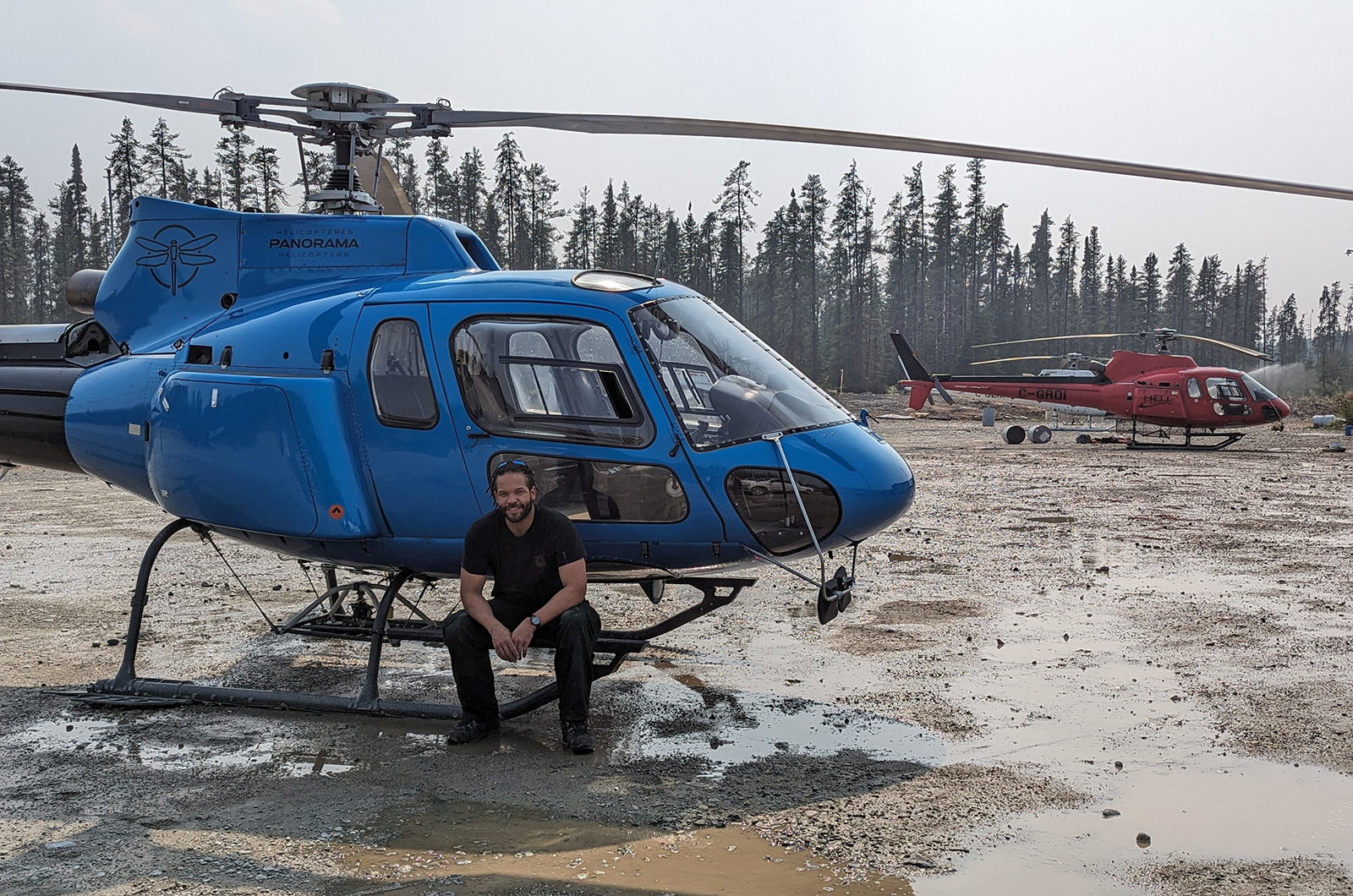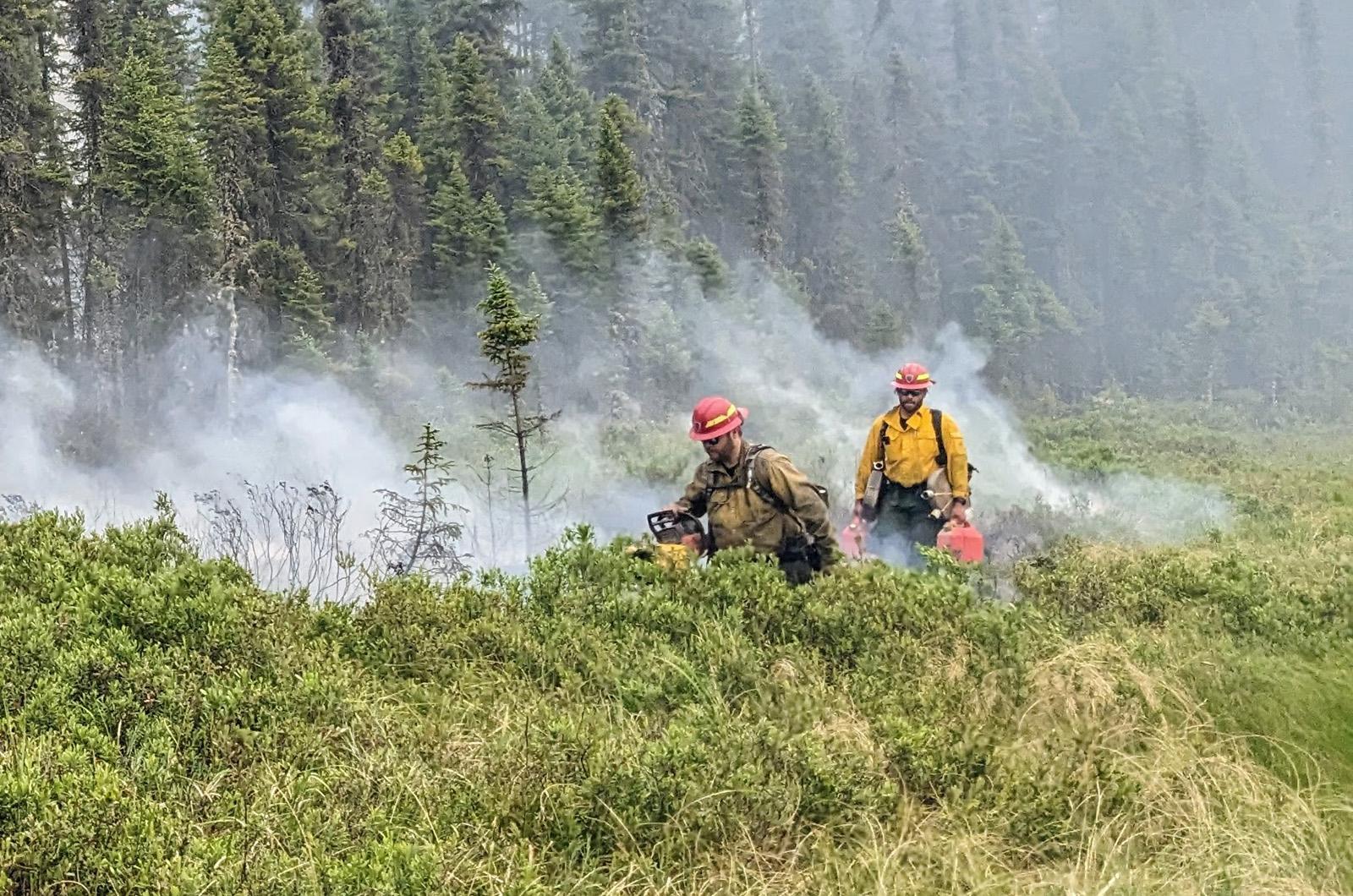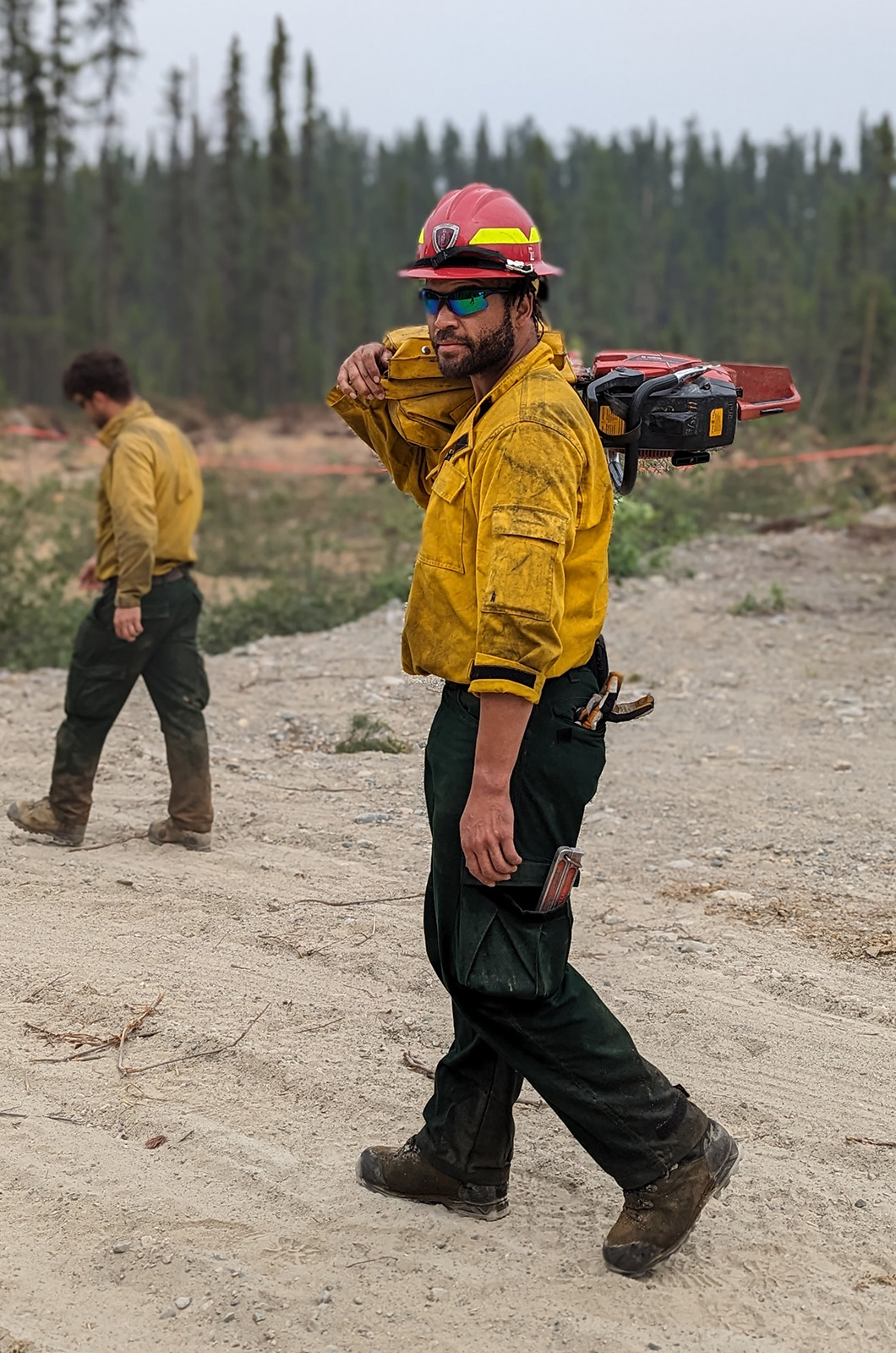Last month, with a little more than a week’s notice, Oak Bluffs resident Charles (Adi) Uchendu and 10 other Massachusetts Department of Conservation and Recreation (DCR) firefighters packed their bags, shared a handshake with Gov. Maura Healey and headed north to a camp 149 miles outside of La Tuque, Quebec.
They were being called into action to help with the forest fires raging through the Canadian province.
“We generally worked 12 to 16 hours [per day],” Mr. Uchendu said after returning to the Island last week. “We’d patrol through areas that had burned previously or were still kind of burning to extinguish hotspots. Other days, we would try to get ahead of active fires and establish breaks where fire wouldn’t be able to proceed.”
Mr. Uchendu worked as an EMT for nearly a decade, but began transitioning to firefighting five years ago when he volunteered for a wildfire management program sponsored by the Bureau of Land Management. He was dispatched to Quebec through the Northeastern Forest Fire Protection Commission, a partnership between the U.S. and Canada that allows member states and provinces to aid each other in wildfire management.
Canada has been experiencing its most destructive season of wildfires, with hundreds of fires breaking out in recent months. Smoke from the blazes created air quality alerts throughout the U.S. and traveled as far as Europe.
According to the Canadian Interagency Forest Fire Centre, as of July 5 there are still more than 600 active fires stretching from coast to coast, with 359 of them reported as “out of control.”
In Quebec, Mr. Uchendu said he and his crew would start the day with a morning briefing with emergency response leaders, then travel via car or helicopter to different forest sites. He said his team directly battled four individual fires, which were chosen by local authorities based on their severity and proximity to residential areas.
“Some of the [other firefighters] I had known for years and some were new faces to me,” he said of the experience in Quebec. “Everyone comes out of the whole thing with a much stronger bond. We talked about what we call post-appointment blues, which happens when you work with people who become close friends and then go back to normal life.”
Normal life, however, is not so normal for Mr. Uchendu, who serves as a seasonal firefighter for the state DCR, and has traveled the world aiding natural and man-made disaster response efforts.
He was inspired to seek out this type of work while working as a children’s summer camp director in Newton. While there he witnessed an accident that prompted him to change his career entirely. Ultimately, the campers were unharmed, but the experience gave him a newfound respect for emergency preparedness and he enrolled in emergency medical technician (EMT) training.
“Every day brings new challenges and struggles with it, but at the same time that’s what makes it all so fulfilling,” he said of the work. “You can say wildfires are wildfires, but they can be very different based on the geography and distribution of people in the area.”
Returning home has its own challenges, Mr. Uchendu said, whose career is full of last-minute, fast-paced excursions. The spontaneity is also what he likes most about his job, he said.

When he is back on the Vineyard, where his family has had a seasonal home for years, Mr. Uchendu is stationed at the Manuel F. Correllus State Forest. There, he conducts wildfire prevention and other land management procedures.
Despite the harrowing nature of his job, Mr. Uchendu said that his family is supportive and accustomed to hearing about his day-to-day perils.
“I actually went to a family reunion [recently], and I think that they are all hopefully used to [my job] at this point,” he said. “I do think that it can be sometimes difficult for them, but they’re a really great resource for me.”
When his seasonal DCR job ends in November, Mr. Uchendu plans to sign another contract with the department that could take him anywhere in the country.
“It will all depend on what is needed and where,” he said. “Really, the most rewarding thing is being able to help people and places that are at a particularly low point. It just varies what that actually looks like.”







Comments (3)
Comments
Comment policy »